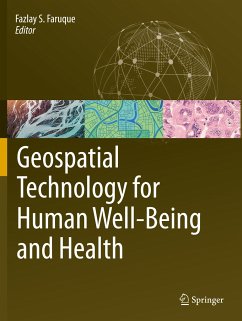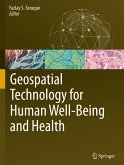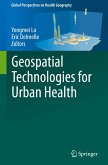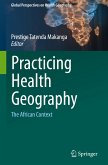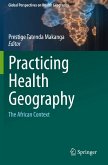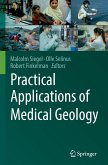Over the last thirty years or so, there have been tremendous advancements in the area of geospatial health; however, somehow, two aspects have not received as much attention as they should have received. These are a) limitations of different spatial analytical tools and b) progress in making geospatial environmental exposure data available for advanced health science research and for medical practice. This edited volume addresses those two less explored areas of geospatial health with augmented discussions on the theories, methodologies and limitations of contemporary geospatial technologies in a wide range of applications related to human well-being and health.
In 20 chapters, readers are presented with an up-to-date assessment of geospatial technologies with an emphasis on understanding general geospatial principles and methodologies that are often overlooked in the research literature. As a result, this book will be of interest to both newcomers and experts in geospatial analysis and will appeal to students and researchers engaged in studying human well-being and health.
Chapters are presenting new concepts, new analytical methods and contemporary applications within the framework of geospatial applications in human well-being and health. The topics addressed by the various chapter authors include analytical approaches, newer areas of geospatial health application, introduction to unique resources, geospatial modeling, and environmental pollution assessments for air, water and soil.
Although geospatial experts are expected to be the primary readers, this book is designed in such a way so that the public health professionals, environmental health scientists and clinicians also find it useful with or without any familiarity with geospatial analysis.
In 20 chapters, readers are presented with an up-to-date assessment of geospatial technologies with an emphasis on understanding general geospatial principles and methodologies that are often overlooked in the research literature. As a result, this book will be of interest to both newcomers and experts in geospatial analysis and will appeal to students and researchers engaged in studying human well-being and health.
Chapters are presenting new concepts, new analytical methods and contemporary applications within the framework of geospatial applications in human well-being and health. The topics addressed by the various chapter authors include analytical approaches, newer areas of geospatial health application, introduction to unique resources, geospatial modeling, and environmental pollution assessments for air, water and soil.
Although geospatial experts are expected to be the primary readers, this book is designed in such a way so that the public health professionals, environmental health scientists and clinicians also find it useful with or without any familiarity with geospatial analysis.

